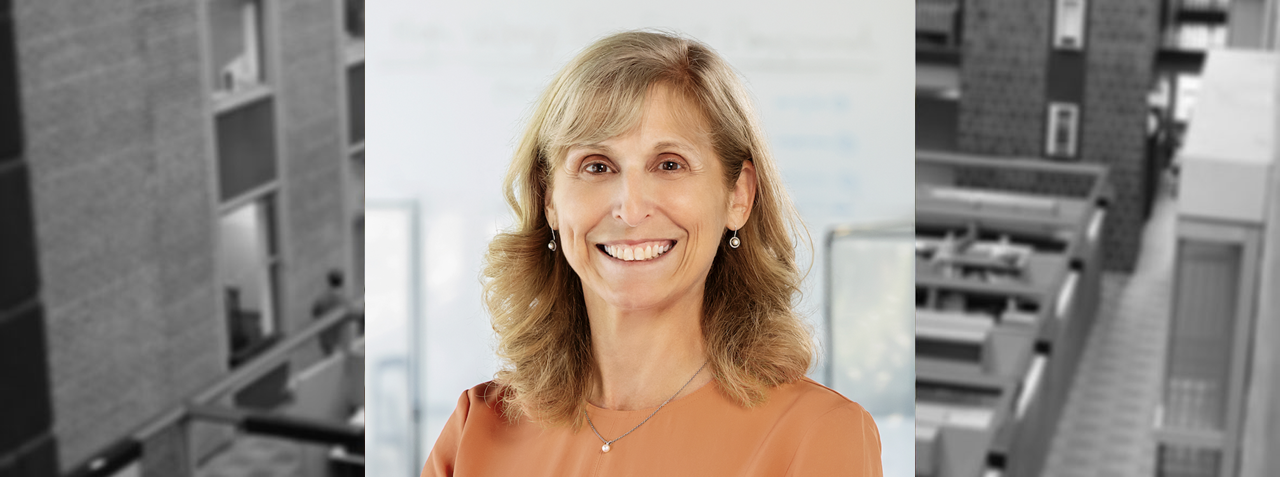
Naomi Ehrich Leonard is Chair and Edwin S. Wilsey Professor of Mechanical and Aerospace Engineering, associated faculty with the Program in Applied and Computational Mathematics and the Biophysics Graduate Program, and affiliated faculty with the Princeton Neuroscience Institute and the Center for Statistics and Machine Learning at Princeton University. She is Founding Director of creativeX, a Princeton engineering-and-the-arts collective, and Founding Editor of Annual Review of Control, Robotics, and Autonomous Systems. Leonard received her B.S.E. in Mechanical Engineering from Princeton University and her Ph.D. in Electrical Engineering from the University of Maryland. She is a MacArthur Fellow, member of the American Academy of Arts and Sciences, Fellow of the ASME, IEEE, IFAC, and SIAM, and recipient of the 2023 IEEE Control Systems Award and 2024 Richard E. Bellman Control Heritage Award. Her current research focuses on dynamics, control, and learning for multiagent systems on networks with application to multi-robot teams, collective animal behavior, and other networked systems in technology, nature, and the arts.
Leonard has enjoyed a long history of collaboration across disciplines, including with researchers from oceanography, ecology and evolutionary biology, neuroscience and political science, and with artists. Her background includes feedback control theory, nonlinear dynamics, geometric mechanics, and robotics, where she has made contributions both to theory and to application. She studies and designs complex, dynamical systems comprised of many interacting agents, such as robots, animals, and/or humans that move, sense, and decide together. Her research program emphasizes the development of analytically tractable mathematical models of collective dynamics that provide the systematic means to examine and leverage the role of feedback (responsive behavior), network interconnection (who is communicating with whom), heterogeneity (individual differences) in the behavior, learning, and resilience of groups in uncertain real-world environments.
Leveraging mathematical models, Leonard has studied mechanisms of collective behavior in fish schools, bird flocks, honeybee swarms, and ant colonies, and she has designed methodology for distributed robotic vehicles to perform collaborative tasks ranging from search over distributed resource to trash collection in human-populated spaces. She led a large, collaborative, multidisciplinary Adaptive Sampling and Prediction project on the development and demonstration, in Monterey Bay, CA, of an automated and adaptive ocean observing system consisting of a coordinated network of underwater robotic vehicles that move about on their own and carry sensors to collect scientific data about the ocean.
A former student of dance and life-long dance enthusiast, she has grown increasingly interested in intersections of engineering with art-making. In 2010 she co-created with choreographer Susan Marshall, Flock Logic, an art-making project that explores what happens when dancers carry out the rules used in models of flocking birds. She subsequently collaborated with choreographer Rebecca Lazier and composer Dan Trueman on the rule-based improvisational dance piece There Might Be Others, which premiered in New York City in 2016. Her current engineering-and-art project, with collaborators Dan Trueman and lighting designer Jane Cox, is Rhythm Bots, an actively controlled kinetic sculpture exploring collective intelligence and providing a creative platform for novel human-machine interaction experiments and opportunities to use intelligent machines to impart positive feelings of wellbeing. As former Director of the Council on Science and Technology (CST), she led the creation of the CST’s StudioLab and co-created the course STC 209: Transformations in Engineering and the Arts. The engineering-and-the-arts collective, creativeX, facilitates ongoing creative research and teaching.